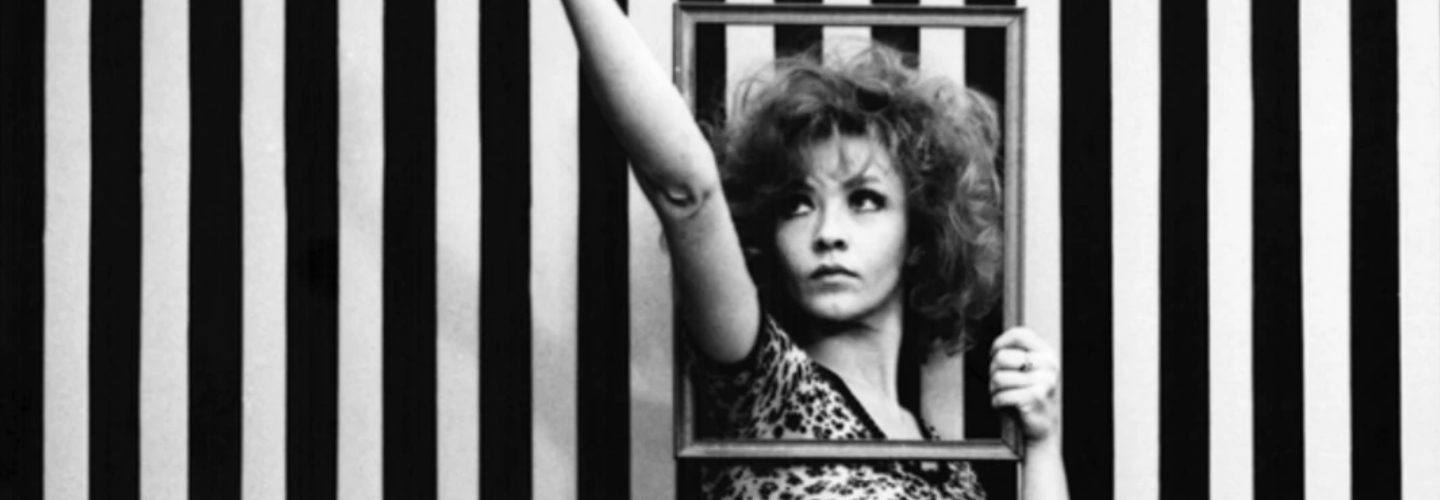Event Details
Date & Time:
Fri February 3, 2017 - Fri March 3, 2017
Location:
The Block Museum of Art
40 Arts Circle Drive
Evanston, IL 60208
Audience:
Open to the public
Details:
In an East Berlin gay bar in 1989, an old man explains his commitment to the communist party’s project of equality after World War II: “We stopped mankind’s exploitation by mankind. Now it does not matter if the person you work with is a Jew or whatever.

WR: Mysteries of the Organism
Friday, February 3, 2017 7:00 PM
(Dušan Makavejev, 1971, Yugoslavia, 35mm, 84 min.)
WR stands for Wilhelm Reich—the controversial Austrian psychotherapist who believed in a

Nicht der Homosexuelle ist pervers , sondern die Situation in der er lebt [It Is Not the Homosexual Who Is Perverse, But the Society in Which He Lives]
Friday, February 10, 2017 7:00 PM
(Rosa von Praunheim, 1971, W. Germany, 16mm, 67 min.)
In this classic of queer
Followed by
Max (Monika Treut, 1992, USA, digital, 29 min.)
German lesbian filmmaker Monika Treut’s short documentary is a candid and intimate portrait of a transman. Much like Rosa von Praunheim’s film, Max explores the performance of gender and sexuality, but it also provides a corrective to the earlier film’s restricted perspective on gay cismale sociality. Treut was a pivotal figure in the so-called “sex wars”: debates among feminists about pornography, sex work, BDSM, and transgenderism. While many conservative feminists railed against what they understood to be the inherent patriarchal foundation of these issues, Treut was among those who argued for sex positivity and fought for the rights of sex workers and trans people.

Egymásra Nézve [Another Way]
Friday, February 24, 2017 7:00 PM
(Károly Makk, 1982, Hungary, DCP, 102 min.)
Set in 1958, Another Way follows Éva, an idealistic journalist fighting to expose the abuses of the state. Éva falls in love with her beautiful coworker Lívia, who, unfortunately, is married to a brutish officer in the Hungarian army. Produced while Hungary was part of the Soviet bloc, led by the communist János Kádár, Károly Makk's film tackles two taboo subjects simultaneously: political repression and sexual oppression. Not only was Another Way the first mainstream Hungarian film to deal with lesbianism
The Raspberry Reich
Friday, March 3, 2017 7:00 PM FREE
(Bruce LaBruce, 2004, Germany, digital, 90 minutes)
The Raspberry Reich, directed by the bad boy of Canadian queer independent cinema, hearkens back to the radical politics and terrorist actions of the Red Army Faction, militant communists who turned theory into practice in West Berlin in the 1970s. The film follows a group of present-day militants who think of themselves as the “sixth generation” of the RAF. Their leader, Gudrun, makes her strand of feminism clear early on when she tosses Virginia Woolf’s novel Mrs. Dalloway into the trash in favor of The Communist Manifesto and Wilhelm Reich’s The Sexual Revolution. She encourages her male comrades to liberate themselves from their heterosexuality and “join the homosexual intifada.” Shot in a deliberately propagandistic style, the film is satirical and sexy. The protagonists fellate shotguns, scandalize their bourgeois neighbors by screwing in the elevator, and eventually kidnap the son of a wealthy industrialist in order to turn him, Patty-Hearst-style, into one of their own.
A Few Howls Again (Silvia Kolbowski, 2008-9, USA, digital, 11 min.)
In A Few Howls Again, contemporary US-based artist Silvia Kolbowski uncannily brings to life the infamous press photograph of RAF revolutionary Ulrike Meinhof dead in her prison cell. This short video examines the legacy of radical militancy, using the past to interrogate the present. The piece is typically shown on a loop in a gallery context alongside its companion piece, Like a Clap of Thunder, which similarly awakens the Marxist Rosa Luxemburg. A martyr like Meinhof, Luxemburg was killed by government paramilitary troops in 1919 for her revolutionary activism.
Contact The Block Museum of Art for more information: (847) 491-4000 or email us at block-museum@northwestern.edu
